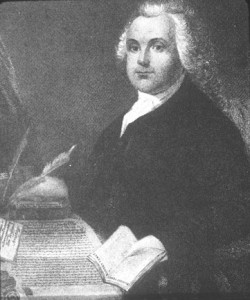The Controversy over Freedom
Posted By bgadmin on February 4, 2011
 In the twenty-first century, freedom in America is controversial. In this regard, not much has changed from the late eighteenth century, a time when Americans fought and won political freedom from Great Britain, only to argue over the meaning of freedom within the new nation.
In the twenty-first century, freedom in America is controversial. In this regard, not much has changed from the late eighteenth century, a time when Americans fought and won political freedom from Great Britain, only to argue over the meaning of freedom within the new nation.
Yet from the freedom struggle of the Revolutionary era emerged the world’s first nation committed to religious liberty for all and separation of church and state, as enshrined in the First Amendment of the United States Constitution.
America’s historical commitment to freedom, however, has taken an unexpected turn in modern America. In short, the closing decades of the twentieth century to the present have witnessed an intense effort, spearheaded by many conservative and fundamentalist Christians, to discard our nation’s heritage of church state separation in favor of government favoritism of certain expressions of faith, and hence a curtailing of religious freedom for all.
Constructed upon phony history, this theocratic-leaning quest makes a mockery of America’s religious heritage and endangers the very foundations of American government and freedom.
 Note: The illustration at the top of the page is of Providence, Rhode Island, in 1650, and is courtesy of the U. S. National Park Service, Roger Williams National Memorial website. Williams (illustration, left), the first Baptist in America, established Providence Plantations (present-day Providence) in 1636. Providence and the Rhode Island colony were founded upon the principles of freedom of conscience, religious liberty for all, and separation of church and state. Some 150 years afterwards, these principles were incorporated into the founding of the American nation.
Note: The illustration at the top of the page is of Providence, Rhode Island, in 1650, and is courtesy of the U. S. National Park Service, Roger Williams National Memorial website. Williams (illustration, left), the first Baptist in America, established Providence Plantations (present-day Providence) in 1636. Providence and the Rhode Island colony were founded upon the principles of freedom of conscience, religious liberty for all, and separation of church and state. Some 150 years afterwards, these principles were incorporated into the founding of the American nation.
This digital resource is made possible by the support of the Baptist History & Heritage Society, a national non-profit organization devoted to communicating the story of Baptists to the world.
